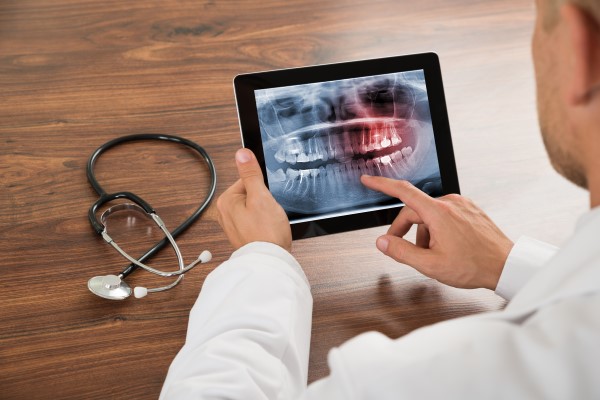Can Cavities Lead to Oral Cancer?

Wondering whether cavities can cause oral cancer? Read on to learn more about how important oral cancer screening is. A dentist will typically check for signs of issues like cavities, gum disease, and oral cancer during a dental checkup and oral cancer screening. Some research suggests that poor oral hygiene habits can lead to serious illnesses such as oral cancer.
An overview of oral cancer
Body cells can grow, multiply, and die. A cancer cell is abnormal and behaves contrarily to regular cells. When cells in the oral cavity become abnormal, they multiply rapidly, resulting in oral cancer. These abnormal cells invade healthy cells, causing tissue damage in the process.
The oral cavity consists of the lips, insides of the cheeks, the gums, teeth, and roof of the mouth, as well as the bottom of the mouth and the base of the tongue. The lips, the inside of the mouth, and the tongue are the three primary places where oral cancers occur.
Oral cancer can also occur in the throat, or the oropharynx (the back part of the mouth). Throat cancer, also known as oropharyngeal cancer, is a form of oral cancer. The back of the tongue, roof of the mouth, the tonsils, and the upper region of the throat are all common sites for throat cancer.
Poor oral hygiene and higher oral cancer risk
According to a recent case study published by the National Center for Biotechnology Information, bad oral hygiene was linked to a much higher risk for oral cancer. Individuals who had poor oral hygiene and chewed tobacco had the greatest risk of developing oral cancer. Considering that poor oral health and tobacco use are both causes of tooth cavities, the association might seem logical.
The case study concluded that maintaining a healthy oral hygiene regimen substantially reduced the risk of developing oral cancer. Brushing the teeth several times a day with toothpaste, routine dental checkups, and having little or no missing teeth is all part of the case study's definition of good oral hygiene.
Other risk factors for oral cancer, according to the report, include tobacco use and diet. In addition to good oral hygiene practices, the case study stated that stopping the use of tobacco products, reducing alcohol consumption, and consuming a well-balanced diet rich in fruits and vegetables were the most effective ways to reduce the risk of oral cancer significantly. Regular oral cancer screening is also important for those who fall into the high-risk category.
Visit the dentist to prevent oral cancer
Oral cancer can affect the teeth, gums, tongue, lips, and throat, causing severe harm. Oral cancer will spread to other parts of the body if neglected. The signs of oral cancer can be detected and diagnosed by dental professionals.
This type of cancer can be prevented with regular dental checkups. During your dental visit, the dentist will perform oral cancer screening, discuss how poor oral hygiene can contribute to oral cancer, and provide tips to improve your oral hygiene routine.
Request an appointment here: https://www.mytotaldentistry.com or call McCarthy Dentistry at (740) 546-5178 for an appointment in our Marietta office.
Check out what others are saying about our services on Yelp: Oral Cancer Screening in Marietta, OH.
Recent Posts
As with any type of cancer, oral cancer is serious, and early detection and treatment is important. In general, this term refers to cancer of the mouth, although the specific tissues that are affected can vary. The more someone understands about this type of cancer, the better the chances it can be diagnosed early and…
While many people already know that it is important to visit the dentist twice a year for a professional cleaning and dental exam, not everyone knows that many dentists check for more than just cavities and gum disease. In addition to examining the teeth and gums, it has become standard for dentists to inspect the…
Gum disease is also known as periodontal disease. This is a condition that causes inflammation of the tissue around the patient’s teeth. It is caused by bacteria building up in the area. Keep reading to learn about some of the symptoms of gum disease.Periodontal disease is a progressive condition, meaning it gets worse over time.…
Gum disease is a serious condition that can result in a need for periodontal treatment. Periodontal treatment is often necessary to destroy the infection and prevent it from worsening. Often, without treatment, a case of gum disease can become advanced, resulting in tooth loss, receding gums, and even jaw deterioration, all of which can be…


